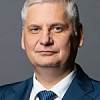The parliamentary elections that took place in Georgia on October 8, 2016 served as a multidimensional political test. The Georgian Dream party, which has “slimmed down” in the political sense (four years ago it was part of a coalition), now operates as a single party with no allies. It was important for Georgian Dream to prove that it was capable of remaining the ruling party. It was also a test for the United National Movement, which was part of the opposition forces four years ago, to see if it could solidify its position as the main opponent of the ruling party, or even challenge for leadership of the country.
The parliamentary elections that took place in Georgia on October 8, 2016 served as a multidimensional political test. The Georgian Dream party, which has “slimmed down” in the political sense (four years ago it was part of a coalition), now operates as a single party with no allies. It was important for Georgian Dream to prove that it was capable of remaining the ruling party. It was also a test for the United National Movement, which was part of the opposition forces four years ago, to see if it could solidify its position as the main opponent of the ruling party, or even challenge for leadership of the country. The parties that are not part of the Georgian political mainstream also had to prove themselves in an environment that has become largely westernized. Both the United National Movement and Georgian Dream, as well as the groups that had broken away from it (the Free Democrats and the Republicans), actively support NATO and European integration. A counterbalance has thus appeared, one which is also faced with a test. It would seem that all these tests have been successfully dealt with to a greater or lesser degree. The ruling party won the elections in the proportional representation system.
A second round of elections will soon be held in most of the majority constituencies. As always, the ruling party, with its administrative resources, has the upper hand.
The United National Movement’s failure to win the election was not a fatal blow; the party may have lost some support, but it is still significant. It will have to make some serious changes to its structure, however, as Mikheil Saakashvili has stated that he has no plans to return to Georgia. It is unlikely that his wife, should she emerge victorious in the second round of elections, will be named the leader of the party. Consequently, the party will get new leaders, and sooner or later the question will present itself: Maybe they can do without him?
Unlike the previous convocation, there will be three parties in Parliament, rather than two. However, we should not overestimate the influence that the Alliance of Patriots of Georgia will have, as it won just six seats in the election – hardly enough to enact a “Copernican Revolution” in the Georgian parliament. Nevertheless, nor is it a non-systemic marginal power; the party has the right to put initiatives forward and question the actions of the government and the parliamentary majority.
We cannot say that the political situation that is developing in Georgia will shake up relations with Russia in a significant way, as the two leading parties are firmly oriented towards the West. They both follow the same strategy, although their tactical approaches differ. When Saakashvili was in power, any kind of “trolling” of Russia was welcomed by the United National Movement. The representatives of the Georgian Dream, party, however, want to move away from this, believing that there is no need to create problems for the West. Their reasoning is thus: if Georgia can prove to the West that it will not create headaches for it with regard to Russia, then maybe the process of joining NATO and the European Union will be expedited. The very fact that there is a power within the Georgian Parliament that understands the need to develop relations with Russia is an encouraging sign.
We should also note another important factor here: the Autonomous Republic of Adjara held elections to its Supreme Council, the results of which were largely overshadowed by the general election. What is significant here is the fact that two parties traditionally considered to be “third powers” – namely, the Democratic Movement led by Nino Burjanadze and the Alliance of Patriots – were also elected into the region’s government. The economically important Autonomous Republic of Adjara (which is home to Batumi, boasts a seaport and has a border with Turkey) is extremely interested in diversifying Georgia’s foreign policy. There have been calls for a third party to emerge in Georgia for some time now, but all previous attempts have proved unsuccessful. This most recent attempt can be seen as a kind of claim to this position. The next general election will be held in four years’ time; only time will tell whether the party will be able to flourish moving forward.





